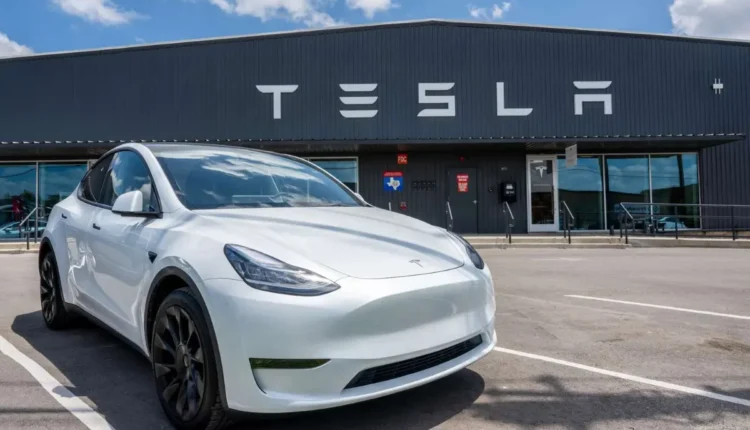Tesla Opens First Showroom in India at Mumbai’s Bandra Kurla Complex
Tesla Expands to India: First Showroom in Mumbai’s BKC Finalized
Elon Musk-led Tesla has taken a monumental step by finalizing a lease for its first showroom in India. According to reports from The Times of India, the electric vehicle giant has secured a 4,000-square-foot space on the ground floor of a commercial tower in Mumbai’s prestigious Bandra Kurla Complex (BKC). This strategic location signifies Tesla’s serious commitment to penetrating the Indian market, a move long anticipated by EV enthusiasts and industry experts alike.
The company is set to pay ₹900 per square foot, amounting to a monthly rent of approximately ₹35 lakh, one of the highest commercial rents in the country. Tesla has signed a five-year lease for the property, reinforcing its long-term vision for India’s EV market.
Expansion Plans: Delhi Showroom in the Pipeline
While Mumbai will house the first Tesla showroom in India, reports suggest that the company is simultaneously working on launching a second showroom in Delhi’s Aerocity. This move aligns with Tesla’s broader strategy of establishing itself in India’s most significant metropolitan cities before scaling further.
Tesla’s decision to expand in India follows a high-profile meeting between Elon Musk and Prime Minister Narendra Modi during Modi’s visit to the U.S. This interaction accelerated Tesla’s plans for India, leading to the company posting job listings for 13 key positions shortly after. The discussions between Musk and Modi revolved around innovation, mobility, space, and technology, signaling the government’s eagerness to support Tesla’s entry into the country.
Pricing in India: What to Expect?
One of the most crucial aspects of Tesla’s arrival in India is pricing. According to CNBC-TV18, the company is considering importing vehicles from Berlin before eventually setting up a manufacturing facility in India. The expected pricing strategy aims to offer a Tesla EV for under $25,000 (approx. ₹20.8 lakh), making it significantly more accessible to Indian buyers.
For reference, the Model 3, which is the most affordable Tesla in the U.S., is priced at $35,000 (approximately ₹30.4 lakh) at the factory level. However, import duties in India have historically posed a challenge for Tesla, making localized production a key factor in reducing costs.
A report by CLSA, a global capital market firm, suggests that with India potentially lowering import duties to 15-20%, the on-road price of the Model 3 in India is projected to range between ₹35-40 lakh. However, additional costs such as road tax and insurance will further influence the final price.
Model 3: Features, Range, and Performance
The Model 3 is expected to be the first model introduced in India. The car comes in three primary configurations:
- Rear-Wheel Drive (RWD): Equipped with a 60kWh lithium iron phosphate battery, it delivers 208kW of power, accelerates from 0 to 100 km/h in 6.1 seconds, and offers a range of 513 km (WLTP).
- Long Range All-Wheel Drive (AWD): This version features a 79kWh lithium nickel manganese cobalt battery, producing 366kW of power, with an acceleration of 0 to 100 km/h in 4.4 seconds and an impressive range of 629 km.
- Performance Model: Designed for speed, this model boasts a 79kWh battery, generating 461kW of power. It accelerates from 0 to 100 km/h in just 3.1 seconds and has a range of 528 km.
Tesla’s Advanced Autonomous Features
Tesla’s Autopilot system comes as a standard feature in all trims, offering advanced driver assistance technologies such as:
- Adaptive Cruise Control
- Lane-Keeping Assistance
- Autonomous Emergency Braking
For those looking for additional automation, Enhanced Autopilot and Full Self-Driving Capability offer features like:
- Navigate on Autopilot
- Auto Lane Change
- Autopark
- Summon
- Traffic Light and Stop Sign Control
Tesla’s commitment to AI-driven autonomous technology will introduce a new dimension of mobility to Indian roads, setting benchmarks for the EV industry.
Also Read : PM Modi: India’s Innovation is Reshaping the Global Economy

